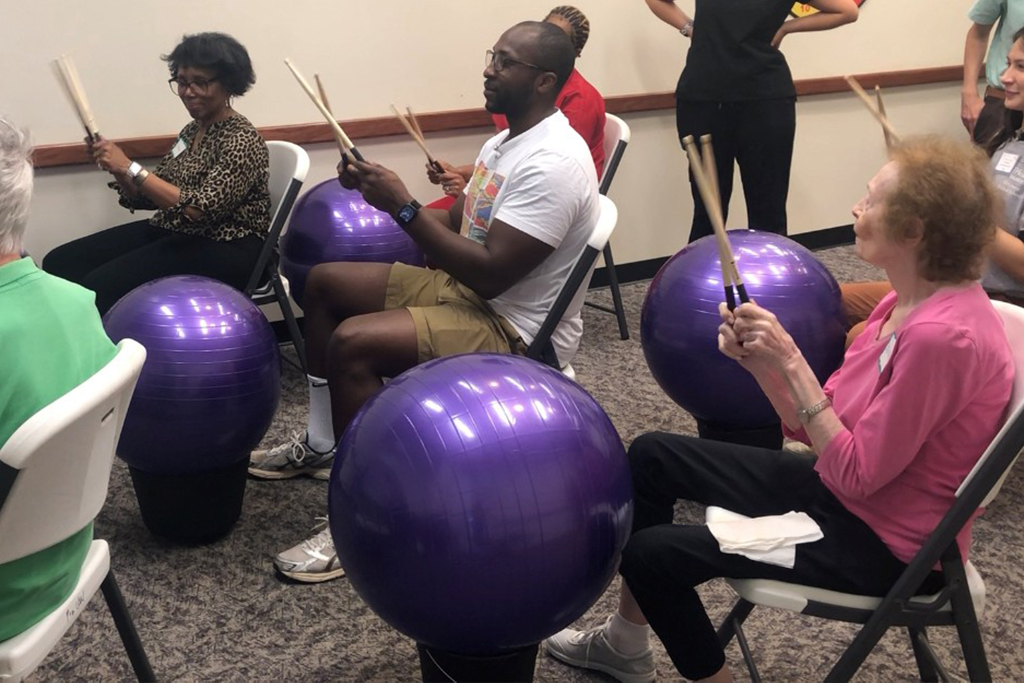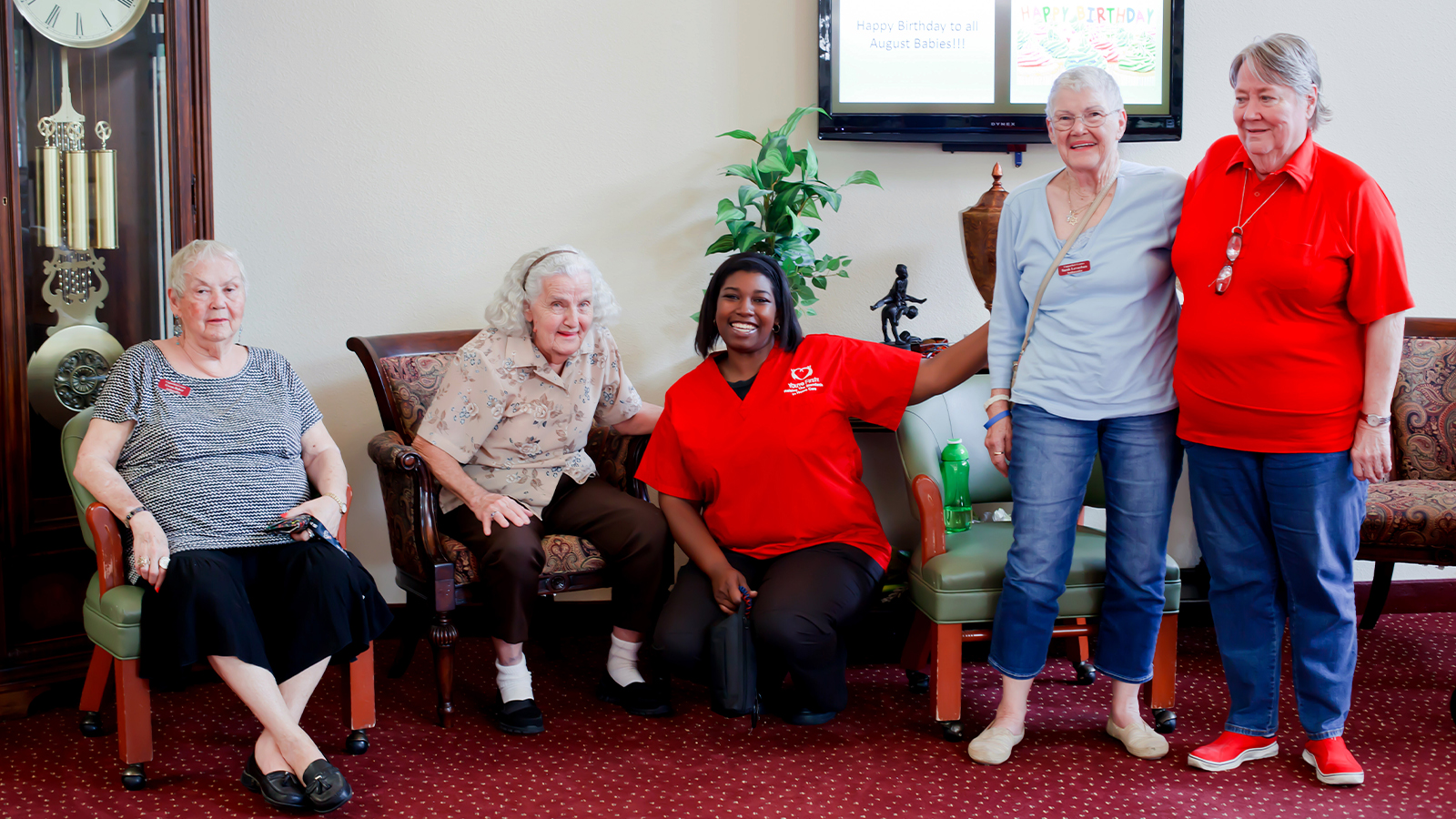The Benefits of Aging in Place for Seniors
Apr
22
2025
As you enter your golden years, you might think about where to live. Senior living facilities have their perks, but aging in place lets you stay home. This choice is popular, with 77% of seniors wanting to stay in their homes.
Aging in place brings many benefits. It lets seniors keep their independence and stay connected with their community. They can also manage their money better. Staying in familiar places can make them feel more comfortable and safe, which is good for those with cognitive issues.
With the right care and minimal home changes, aging in place can greatly improve a senior’s life. It’s a way to enjoy a higher quality of life at home.
When thinking about aging in place, it’s key to know what you need and want. Understanding the pros and cons helps you make a smart choice. This way, you can ensure you get the care and support you need to live well in your later years.
This is where You’re First Home Care really helps. From our SmartCare Assessment to Specialized Home Care, we’re here to support seniors who choose to remain at home as they age.
Key Takeaways
- Aging in place allows seniors to maintain independence and autonomy
- Familiar surroundings offer comfort and can reduce confusion for older adults
- Aging in place can be more cost-effective than senior living facilities
- Seniors can maintain social connections and community ties by aging in place
- Personalized care services and home minimal modifications can support successful aging in place
- Assistance when you need it; not waiting on help
- Keeping your pet; many care communities not allow you to keep your pet. Those that do have strict rules.
Understanding Aging in Place
More seniors want to stay in their homes as they age. Aging in place allows older adults to continue living safely and independently at home, no matter the age or ability. It’s a popular choice over moving to assisted living or nursing homes.
Staying at home lets seniors keep their sense of familiarity and control. With home changes and in-home care, many can age well at home. This not only boosts their quality of life but can also save money with lowered care costs compared to care facilities.
Discover Home Care vs. Nursing Home: Why In-Home Care is Better for Senior Care.
Defining Aging in Place
Aging in place refers to the ability of individuals to live in their own home and community safely, independently, and comfortably, regardless of age or ability level.
The goal is to make the home safe and comfortable for older adults. This might include home changes and care plans tailored to their needs.
Current Trends in Senior Living Preferences
In the last 20 years, senior living choices have changed a lot. More older adults prefer to age in place than move to care facilities. In 2020, only 1.2 million over 65 lived in nursing homes, showing a shift towards aging at home.
As this trend grows, communities and healthcare must support home-based aging. This includes better home care, age-friendly communities, and using technology to help seniors stay safe and independent at home.

Preserving Independence and Autonomy
Many seniors may value aging in home for its independence and autonomy. Living at home lets them decide their daily routines and activities. This control over their lives boosts their well-being by offering emotional and psychological benefits.
Maintaining Control Over Daily Routines
One advantage aging in place offers is keeping control over daily life. Seniors at home can set their own schedules for meals and activities. This autonomy is key for those with personal preferences or needs.
Nursing homes or assisted living have strict schedules. While these help operations run smoothly, they can take away personal freedom.
In-home care help with the ability for seniors to maintain this independence. Seniors aging can utilize services like Personal Care Assistance to help with daily living activities for the additional with the care they need.
Retaining Familiarity with Surroundings
Staying in familiar surroundings is another benefit of aging in place. Homes are filled with cherished memories and possessions. This stability is invaluable to assist with the comfort of aging.
Knowing their surroundings well helps seniors navigate daily life. They can find their way around easily, even with cognitive or mobility issues. This familiarity is a big advantage. Home care providers like You’re First Home Care in Houston can also produce customized care plans to help with Alzheimer’s and Dementia Care including activities and outings.

Financial Benefits of Aging in Place
Many seniors who age in place find it to be financially beneficial. It helps them keep their monthly costs low. About 39% of adults over 65 own their homes without a mortgage, making it a good choice financially.
Even those with a mortgage can use home equity for income. This way, they can afford home modifications and professional care. It helps them stay independent in their own homes and communities, just some of the many benefits of seniors maintaining a happier outlook on life.
Comparing Costs: Aging in Place vs. Senior Living Facilities
Costs associate with home care is often cheaper nursing homes and assisted living facilities. Here’s a comparison:
| Care Setting | Average Monthly Cost |
| Aging in Place with Home Care | $4,500 |
| Assisted Living Facility | $4,300 |
| Nursing Home (Semi-Private Room) | $7,756 |
| Nursing Home (Private Room) | $8,821 |
source: https://www.payingforseniorcare.com/texas
Choosing home care is more affordable than a nursing home. It helps seniors live better and enjoy their familiar surroundings.
Utilizing Home Equity to Support Aging in Place
Homeowners can use home equity wisely. Options include:
- Reverse Mortgages
- Home Equity Loans
- Home Equity Lines of Credit (HELOCs)
By exploring these options, seniors can make smart choices. They can use their home equity to age in place comfortably and independently.

Maintaining Social Connections and Community Ties
Staying in your own home as you age helps you keep strong social bonds. You can hold onto friendships and neighborhood ties. These connections make you feel part of a community and boost your happiness.
Studies show that being social can slow down memory loss and dementia in older people. Talking to friends, family, and community members keeps your mind sharp. It also gives you emotional support, which is key for staying healthy and happy.
Living at home lets older adults join local events and volunteer. This keeps them connected to their community. Moving to a care facility or assisted living can make it harder to stay in touch with friends and neighbors.
Research links feeling connected to your social network and neighborhood with less loneliness. Staying in your own home means you’re surrounded by people and places you know. This helps you feel more connected and happy.
| Living Arrangement | Social Connectedness | Community Ties |
| Aging in Place | High | Strong |
| Assisted Living Facility | Moderate | Weak |
| Nursing Home | Low | Very Weak |
The table shows how aging in place compares to other living options. It highlights the benefits of staying in your home. Older adults can keep their social and emotional connections strong. They also stay involved in their community.
Learn about our innovative new home care program, SharingCare™.

The Benefits of Aging in Place for Seniors
Discovering the benefits of aging in place shows why it’s key for seniors. The National Institute on Aging says most older adults want to stay at home. This choice lets them keep their independence, comfort, and ties to their community.
Staying at home improves a senior’s quality of life. They can keep doing what they love and follow their usual routines. Being in familiar places helps them feel more like themselves and keeps their minds sharp.
Reduced Risk of Depression and Cognitive Decline
Research shows staying at home can lower the risk of depression and memory loss. Being in a place they know and keeping up with friends helps their mental health. Moving to a new place, like a nursing home, can make them feel lost and alone. Socialization can be a challenge as well in care facilities due to many factors including the cognitive or physical levels of the people in that community.
Personalized Care and Attention
Another plus of aging in place is getting care that fits their needs. Seniors can get help with daily tasks, like taking medicine, while staying independent. Home care services offer tailored support.
| Benefit | Aging in Place | Nursing Home |
| Familiar Environment | Yes | No |
| Personalized Care | Yes | Limited |
| Social Connections | Maintained | Disrupted |
The table shows aging in place has many benefits over nursing homes. Seniors can stay in their homes, get care that fits them, and keep their friends. These things make their lives better and their mental health stronger.
Challenges and Solutions for Successful Aging in Place
Aging in place has many benefits for seniors. But, it also comes with challenges. These challenges can make living at home safe and comfortable. By tackling these issues, seniors can keep their independence and enjoy life.
Home Modifications for Safety and Accessibility
Seniors face safety and accessibility issues in their homes. As they get older, it’s important to make changes. These changes help prevent falls and accidents. You’re First Home Care’s SmartCare Assessment identifies areas of concern.
- Installing grab bars in bathrooms and along staircases
- Improving lighting throughout the home
- Removing trip hazards such as loose rugs or electrical cords
- Widening doorways to accommodate mobility aids
Utilizing Technology to Support Independence
Technology has brought new ways to help seniors stay independent. Tools like reminders for medication and activity tracking offer safety and peace of mind. Some useful technologies include:
- Personal emergency response systems (PERS)
- Smart home devices for automated lighting and temperature control
- Medication management apps and dispensers
- Video chat platforms to stay connected with family and healthcare providers
Engaging Professional Home Care Services
As needs grow, professional home care can be a great help. These services offer the right level of care, from simple help to medical care. The benefits include:
- Personalized care plans tailored to individual needs
- Respite Care for family caregivers, reducing burnout and stress
- Access to in-home skilled nursing care and therapy services
- Assistance with activities of daily living (ADLs) such as bathing and dressing
For those with long-term care insurance, it helps pay for these services. This makes aging in place more affordable. By facing challenges and using available resources, seniors can age in place safely and comfortably.
Community Support for Aging in Place
More seniors are choosing to stay in their homes as they age. Communities in the U.S. are working to make these homes safe and supportive. They aim to help seniors stay independent for as long as they can.
Age-Friendly Community Initiatives
Age-friendly projects make neighborhoods better for older adults. They focus on safety, lighting, and easy transportation. Local groups, businesses, and non-profits work together to support seniors.
Some features of age-friendly communities include:
- Safe and accessible sidewalks and crosswalks
- Affordable and reliable public transportation
- Accessible housing options with home modifications and care services
- Community centers and parks that promote social engagement and physical activity
The Role of Senior Centers and Community Organizations
Senior centers and community groups are key in supporting aging in place. They offer social activities, education, and help with daily tasks. Services include:
- Meal programs and nutrition education
- Fitness classes and health screenings
- Transportation services
- Volunteer opportunities
- Referrals to home care professionals and other supportive services
Older adults can stay connected and active through these programs. They also get the help they need to age in their own homes. This approach helps seniors save money and enjoy the benefits of aging in a familiar setting.
Conclusion
Aging in place has many benefits for seniors and their families. It lets older adults stay at home, keep their independence, and connect with others. This option is also more affordable than moving to a nursing home.
Staying at home can be challenging, but there are ways to make it safe and comfortable. Home modifications and supportive technology can help a lot. For example, grab bars and better lighting make homes safer. Medical alert systems and remote monitoring devices offer extra security.
Professional Houston home care services, like You’re First Home Care, provide the help needed. They assist with daily tasks and medical needs. This way, seniors can age in place with dignity.
More communities are becoming age-friendly, and senior centers offer great resources. This makes it easier for seniors to live well at home. Understanding the benefits and solutions helps make the right choice for aging loved ones. It ensures they get the support they need to enjoy their golden years.
FAQ – Benefits of Seniors Aging at Home
What is aging in place?
Aging in place means staying in your home or a place you love as you get older. This could be a big house or a cozy apartment.
What are the benefits of aging in place?
Staying in your home as you age has many perks. It keeps you independent and connected to your community. It also helps you save money and feel comfortable in familiar surroundings.
It can make your life better, lower the chance of feeling sad or forgetful, and let you get care that fits your needs.
How can I make my home safer for aging in place?
Making your home safe is key. You can add grab bars, improve the lighting, and clear out any dangers. Using technology like reminders and alerts can also help you stay safe and independent.
Is aging in place more cost-effective than senior living facilities?
For many, staying in their home is cheaper than moving to a senior facility. About 39% of seniors own their homes without a mortgage. They can even use their home’s value to get money to help them stay.
How can I maintain social connections while aging in place?
You can keep up with friends and community by staying in your home. Joining senior centers, groups, and using home care services can help. This way, you won’t feel lonely.
What challenges should I be aware of when aging in place?
There are a few hurdles to face, like making your home safe and getting around. You might also need help from family or friends. But, there are solutions like making your home safer, using technology, and getting professional help.
These steps can help you stay safe and proud in your home.
How can professional home care services support aging in place?
Services like those from You’re First Home Care in Houston, Texas, can be a big help. They offer personalized care that fits your needs, including companionship and help with health issues. This way, you can stay in your home comfortably.
Reach Out






